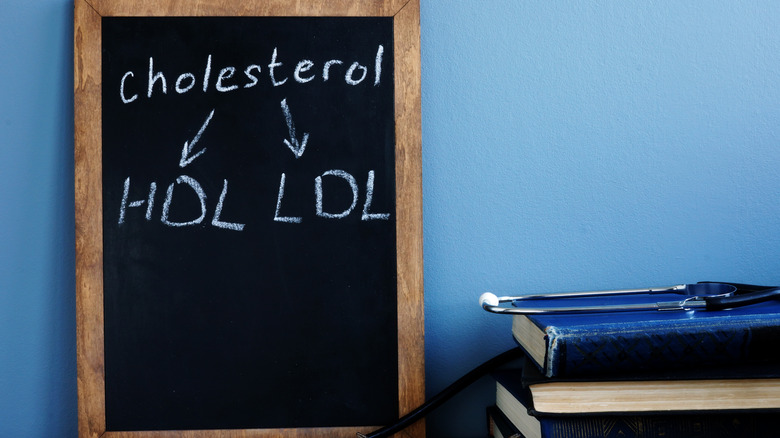Cholesterol screening results can provide important clues about your health.
As you probably know, high cholesterol is a major risk factor for heart disease.
Excess cholesterol promotes plaque buildup in your arteries and may lead to coronary artery disease, notes theU.S.

Nearly 40% of Americans have high cholesterol, reports theCenters for Disease Prevention and Control(CDC).
Obesity, diabetes, smoking, andpoor nutritionall contribute to this condition.
A sedentary lifestyle can further affect cholesterol levels, warns theCDC.

Unfortunately, this condition has no symptoms.
The only way to measure your cholesterol levels is to get a blood test.
The same source reports that about 405 Americans die from stroke each day.

Considering these facts, it makes sense to keep your cholesterol levels in check.
Hypertriglyceridemia, or high triglycerides, can further increase your risk of developing cardiovascular problems.
This condition may also contribute to pancreatitis and metabolic syndrome, notes theCleveland Clinic.
These fats increase good cholesterol levels while lowering bad cholesterol and triglycerides, explains theAmerican Academy of Family Physicians.
LDL cholesterol levels should not be higher than 100 mg/dL, while triglycerides should be less than 150 ml/dL.
HDL cholesterol levels over 60 ml/dL are considered good.
Your doctor will check these numbers and recommend the best course of action.
Depending on the results, he may prescribe medications,lifestyle changes, or follow-up tests.
The test itself is minimally invasive and can be performed at any diagnostic lab.
Some pharmacies and walk-in clinics offer cholesterol screening services, too.
A nurse will take blood from your arm or finger and call you back in a few days.
Call your doctor or the clinic where your appointment is scheduled and ask about it.
Note that you could also take the test at home.
According to theFDA, at-home cholesterol test kits are just as accurate as a traditional cholesterol screening.
Simply prick your finger to collect a drop of blood.